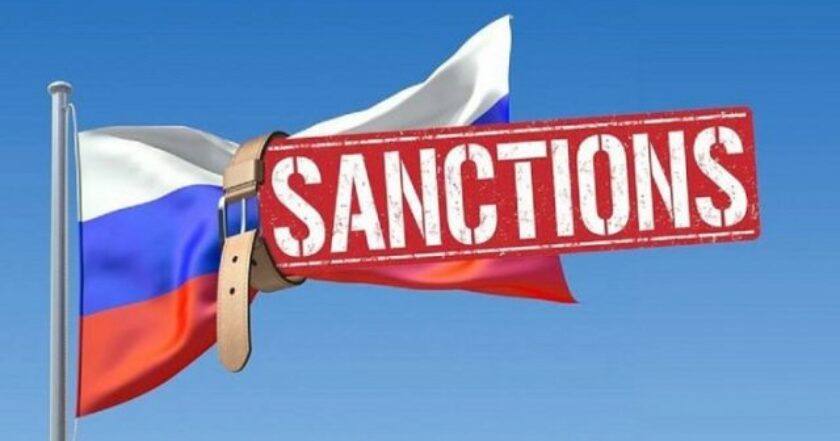EU ambassadors approve details of eighth sanctions package against russia

On October 5, the ambassadors of the European Union approved the details of the eighth package of EU sanctions against russia in response to the annexation of Ukrainian territories.
Radio Liberty editor for European affairs, Rikard Jozwiak, reported this on his Twitter.
"EU ambassadors have now approved all details of the Russia sanctions package and a so-called written procedure launched that will finish at 10 tomorrow. So publication in the EU official journal some time tomorrow," the journalist noted.
EU ambassadors have now approved all details of the #Russia sanctions package and a so-called written procedure launched that will finish at 10 tomorrow. so publication in the EU official journal some time tomorrow. #Ukraine
— Rikard Jozwiak (@RikardJozwiak) October 5, 2022
Later, information about the approval of sanctions was confirmed by the President of the European Commission, Ursula von der Leyen.
I welcome the Member States' agreement today on the 8th sanctions package.
We have moved quickly and decisively.
We will never accept Putin's sham referenda nor any kind of annexation in Ukraine.
We are determined to continue making the Kremlin pay.
— Ursula von der Leyen (@vonderleyen) October 5, 2022
As reported, the official publication of the sanctions package is expected on October 6. The main element of the sanctions is the limitation of oil prices.
However, Hungary has said that the price restrictions on russian oil should not apply to pipeline supplies and also for emergency cases, for sea deliveries.
In addition, Hungary succeeded in excluding nuclear energy from the new EU sanctions package against russia.
Last week, the European Commission proposed the eighth sanctions package against russia for invading Ukraine and holding illegal referendums in the occupied territories.
It includes, in particular, a ban on trade with russia for 7.5 billion euros and a legal basis for limiting prices for russian oil.
In addition, the EU will expand the sanctions lists and introduce personal sanctions against representatives of russia's Ministry of Defense and Kremlin-controlled representatives of the occupying power in the four Ukrainian regions where the pseudo-referendums were held.
The package also prohibits EU citizens from serving on the boards of russian state-owned enterprises.
In addition, Brussels is still introducing a new category of sanctions for people who help circumvent the restrictions imposed on russia.
The package aims to hit russia's steel industry and deprive the Kremlin's military of critical technologies.


















































